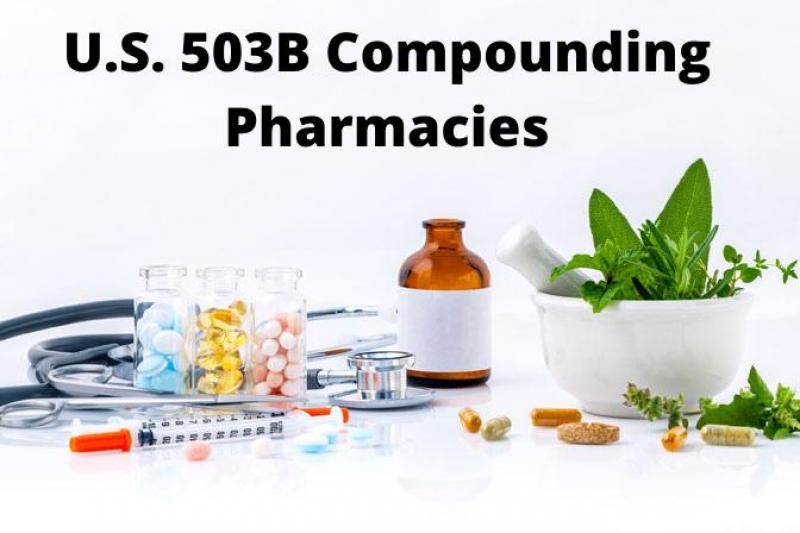In the realm of healthcare, pharmaceutical compounding plays a vital role in meeting unique patient needs. Among the various types of compounding pharmacies in the U.S. 503B Compounding Pharmacies have emerged as a crucial source of reliable and standardized compounded medications. In this blog, we will explore the significance of these pharmacies and the regulations that govern their operations.
Understanding Compounding Pharmacies
Compounding pharmacies specialize in creating personalized medications tailored to the specific needs of patients. While traditional compounding pharmacies have been in existence for centuries, the emergence of 503B compounding pharmacies brought a new level of standardization and regulatory oversight to the industry. These pharmacies operate under the Drug Quality and Security Act (DQSA) and are subject to stringent regulations set by the U.S. Food and Drug Administration (FDA).
The U.S. 503B Compounding Pharmacies Market in the United States is anticipated to reach US$ 985.6 million in 2022 and grow at a 7.6% CAGR from 2022 to 2030.
The Role of 503B Compounding Pharmacies
503B compounding pharmacies serve a critical role in healthcare by providing a reliable supply of compounded medications to hospitals, clinics, and healthcare providers. Unlike traditional compounding pharmacies, U.S. 503B Compounding Pharmacies operate under current Good Manufacturing Practices (cGMPs), which ensure the highest quality and safety standards. They produce large batches of compounded medications, making them suitable for situations where a stable and consistent supply is required.
Regulatory Oversight
To maintain patient safety and product quality, 503B compounding pharmacies must comply with rigorous regulatory requirements. The FDA inspects and monitors these facilities to ensure adherence to cGMPs. Additionally, 503B pharmacies are prohibited from compounding medications that are essentially copies of commercially available drugs. This regulation aims to prevent competition with FDA-approved drugs while ensuring that patients have access to necessary compounded medications.
Advantages and Benefits
The presence of U.S. 503B Compounding Pharmacies brings several advantages to the healthcare system. These pharmacies provide healthcare professionals with a reliable and standardized source of compounded medications, reducing the need for in-house compounding in healthcare facilities.
By producing large batches of medications, they contribute to a stable supply chain and can quickly respond to medication shortages. Furthermore, their compliance with cGMPs ensures that patients receive medications of consistent quality and efficacy, minimizing risks associated with variations in compounded formulations.
Compounding Chemotherapy medications can be a complex process that requires expertise and strict quality control measures to ensure patient safety. In the United States, compounding pharmacies play a crucial role in the provision of customized medications, including compounded chemotherapy drugs.
503B compounding pharmacies have become integral to the healthcare system in the United States. By providing standardized and high-quality compounded medications, they ensure that patients receive the necessary treatments tailored to their unique needs. The regulatory oversight they operate under serves to uphold patient safety and maintain the integrity of the medication supply chain.
